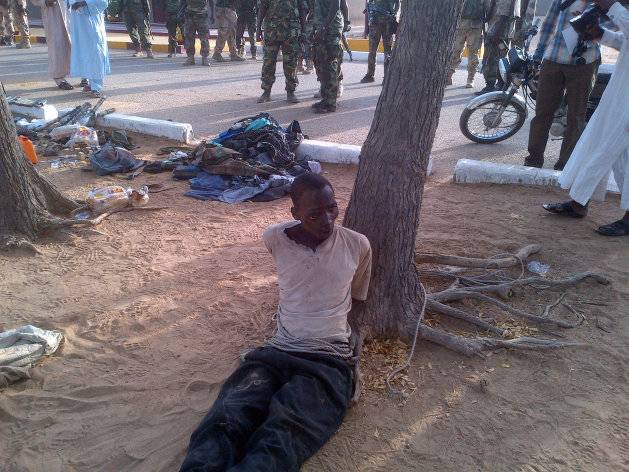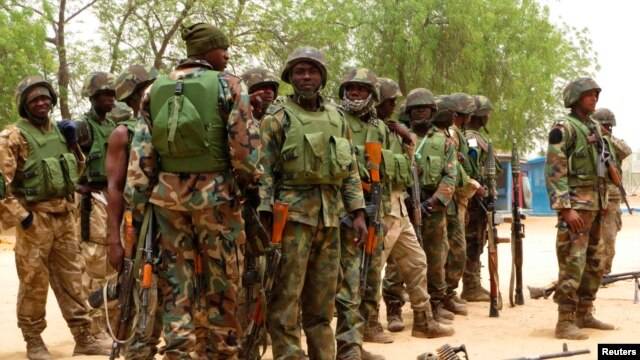Nigeria president declares state of emergency

Nigeria president declares state of emergency

LAGOS, Nigeria (AP) Admitting Islamic extremists now control some of his nation's villages and towns, Nigeria's president declared a state of emergency Tuesday across the country's troubled northeast, promising to send more troops to fight what he said is now an open rebellion.
President Goodluck Jonathan, speaking live on state radio and television networks, also warned that any building suspected to house Islamic extremists would be taken over in what he described as the "war" now facing Africa's most populous nation. However, it's unclear what the emergency powers will do to halt the violence, as a similar past effort failed to stop the bloodshed.
"It would appear that there is a systematic effort by insurgents and terrorists to destabilize the Nigerian state and test our collective resolve," Jonathan said.
Jonathan said the order will be in force in Adamawa, Borno and Yobe states. He said the states would receive more troops, though he will not remove state politicians from their posts. Under Nigerian law, the president has the power to remove politicians from their posts and install a caretaker government in emergency circumstances.
The president's speech offered the starkest vision of the ongoing violence, often downplayed by security forces and government officials due to political considerations. Jonathan described the attacks as a "rebellion," at one point describing how fighters had destroyed government buildings and "had taken women and children as hostages."
"Already, some northern parts of Borno state have been taken over by groups whose allegiance are to different flags than Nigeria's," Jonathan said.
The president later added: "These actions amount to a declaration of war and a deliberate attempt to undermine the authority of the Nigerian state and threaten (its) territorial integrity. As a responsible government, we will not tolerate this."
Nigeria president declares state of emergency



